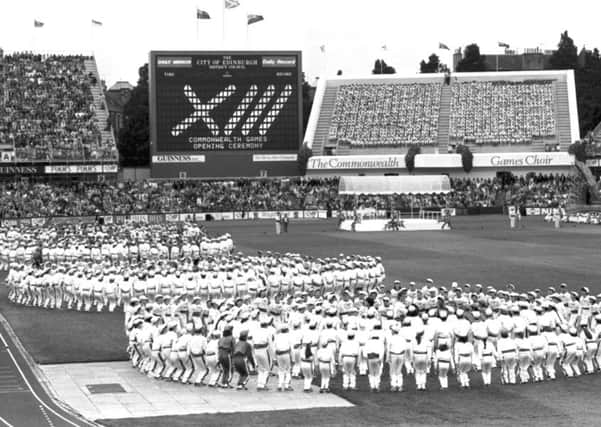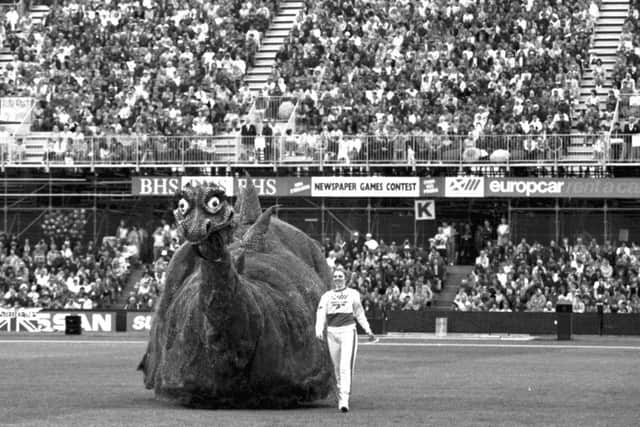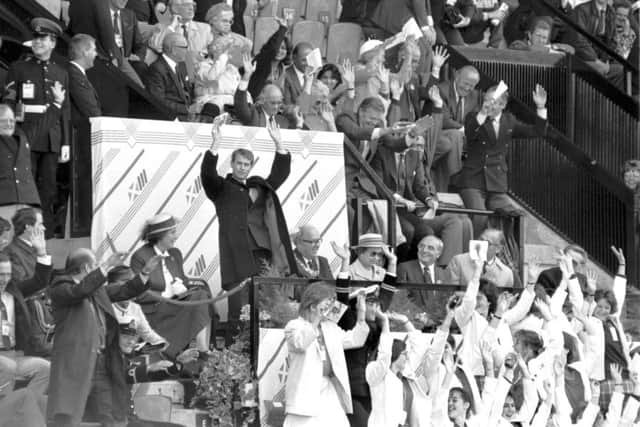30 years on: A look back at the 1986 Edinburgh Commonwealth Games


It might be 30 years this week since Edinburgh last hosted the Commonwealth Games but the scars still run deep thanks to a toxic mix of political machinations, financial headaches and a corrupt newspaper owner.
Indeed, years later, the chair of the Commonwealth Games Federation, Sir Peter Heatly – a three-time gold medal winning diver from Leith and the driving force behind bringing the Games to Edinburgh both times – recalled how he “died a little bit every day” when the Games were hit by a boycott.
Advertisement
Hide AdAdvertisement
Hide AdAnd yet, the idea that Edinburgh should stage a second Commonwealth Games just 16 years after its successful first Games seemed obvious and apparently straightforward to Heatly and many others.


After all, in 1970 the city had hosted what was considered the best and biggest Games ever – with 42 nations and 1700 athletes competing in new sporting facilities built to rival any in the world.
The Royal Commonwealth Pool and Meadowbank Stadium were still in good condition. Even the velodrome was still going strong – though it had been pressure from Heatly which had seen it built at all as the then Lord Provost of Edinburgh, Sir Herbert Brechin, had said it was too expensive. But Heatly had told him that he could not renege on his promise to the cyclists as it would break the conditions on which the city had been awarded the Games.
Then there was the fact that no other city had actually bid to host the XIII Games – Edinburgh was riding to the rescue of the whole event.
But financial issues were a headache from the outset.


Advertisement
Hide AdAdvertisement
Hide AdMargaret Thatcher had resolutely declared there would be no government cash going to the Games – and debts began to mount.
Tory councillor and Lord Provost Kenneth Borthwick was in charge of attracting sponsorship, but according to then Labour leader of the council Alex Wood, he was out of his depth. “Borthwick was an old-fashioned small businessman, a conservative Conservative. Dithering inaction was his default position.”
Malcolm Beattie, who would become the commercial lead of the Auckland 1990 Games was later scathing: “Ken Borthwick was very old-school. He showed great deference to the Queen and the establishment but didn’t understand anything about running a big sports event. We wanted to know about money, accommodation, sponsors – all he spoke about was the sound of bagpipes at dawn.”
Then in rode the Games’ “white knight”. Robert Maxwell took over as chairman of the event on June 19, promising £2 million. It looked like things were on the up. But just ten days before the opening ceremony the PM declared she would not support sanctions against apartheid South Africa.


Advertisement
Hide AdAdvertisement
Hide AdEven though he had been involved behind the scenes in defying Margaret Thatcher when she wanted Britain to boycott the 1980 Moscow Olympics following the Soviet invasion of Afghanistan, the idea that the “friendly” Commonwealth Games could be blighted by politics seemed unthinkable to Heatly and others.
But from that moment the Games began to sink. The Friendly Games fast became known as the Boycott Games.
As Heatly later said: “When we realised what Mrs Thatcher had done, just ten days before the Games were due to open, we would wake up every morning and find that another country had decided not to come. The boycott was terrible: you died a little bit every day.”
Ultimately 32 of the 59 eligible countries boycotted the Games – removing 1500 athletes. Sponsors pulled out, leaving just £4m of the expected £12m and the deficit began to climb.


Advertisement
Hide AdAdvertisement
Hide AdOnly 26 nations eventually participated – some arrived in Edinburgh only to discover their governments had joined the boycott. Bermuda even paraded in the opening ceremony before its athletes were called home. It was the lowest turnout at the Games since 1950.
Maxwell summed it up: “Have a thought for the hundreds of athletes who will be suffering heartache and disappointment that all their years of preparation have been wasted.”
And yet despite it all, the public flocked to Meadowbank. The opening ceremony involved 6500 children from all over Scotland singing and dancing while the cast list of sporting champs was incredible.
Steve Ovett ran the 5000m, Steve Cram the 800m and 1500m. Daley Thompson won the decathlon for the third time, Tessa Sanderson won javelin and Linford Christie was beaten by Ben Johnson in the 100m.
Advertisement
Hide AdAdvertisement
Hide AdDespite the torrential rain of an Edinburgh summer, Liz Lynch (later McColgan) became Scotland’s newest sporting hero, racing to gold in the 10,000m on the last day. She cried on the podium despite swearing she wouldn’t – and having a bet on it. She lost. “I didn’t think I would, but the crowd were something else and Scotland the Brave sounded so wonderful. It was so overwhelming.”
Overall, Team Scotland won three golds from a medal haul of 33 and came sixth in the medal table while England topped it.
But away from the track and field, controversy still raged. The money Maxwell promised had not been forthcoming. He gave just £250,000 and it took three years before all bills were paid – the deficit was £4.3m at the end of the Games. His role was still being debated years after he died.
Yet he ensured favourable coverage of the Games through his newspapers, gaining millions of pounds’ worth of positive publicity – the official sponsor was Guinness but many believed it to be the Mirror Group. And he brought in a Japanese businessman, Sasakawa, who donated nearly £2m and reduced the losses by tough negotiation with creditors – including the council, which had to write off £500,000.
Advertisement
Hide AdAdvertisement
Hide AdIndeed some believe that without him the Edinburgh Games would have been an embarrassment that the UK and the Games Federation might never have lived down; that the Games might never have been held again.
Since then they’ve gone from strength to strength, but certainly the unlucky 13th Commonwealth Games probably put off Edinburgh councillors from ever contemplating staging such an event ever again.